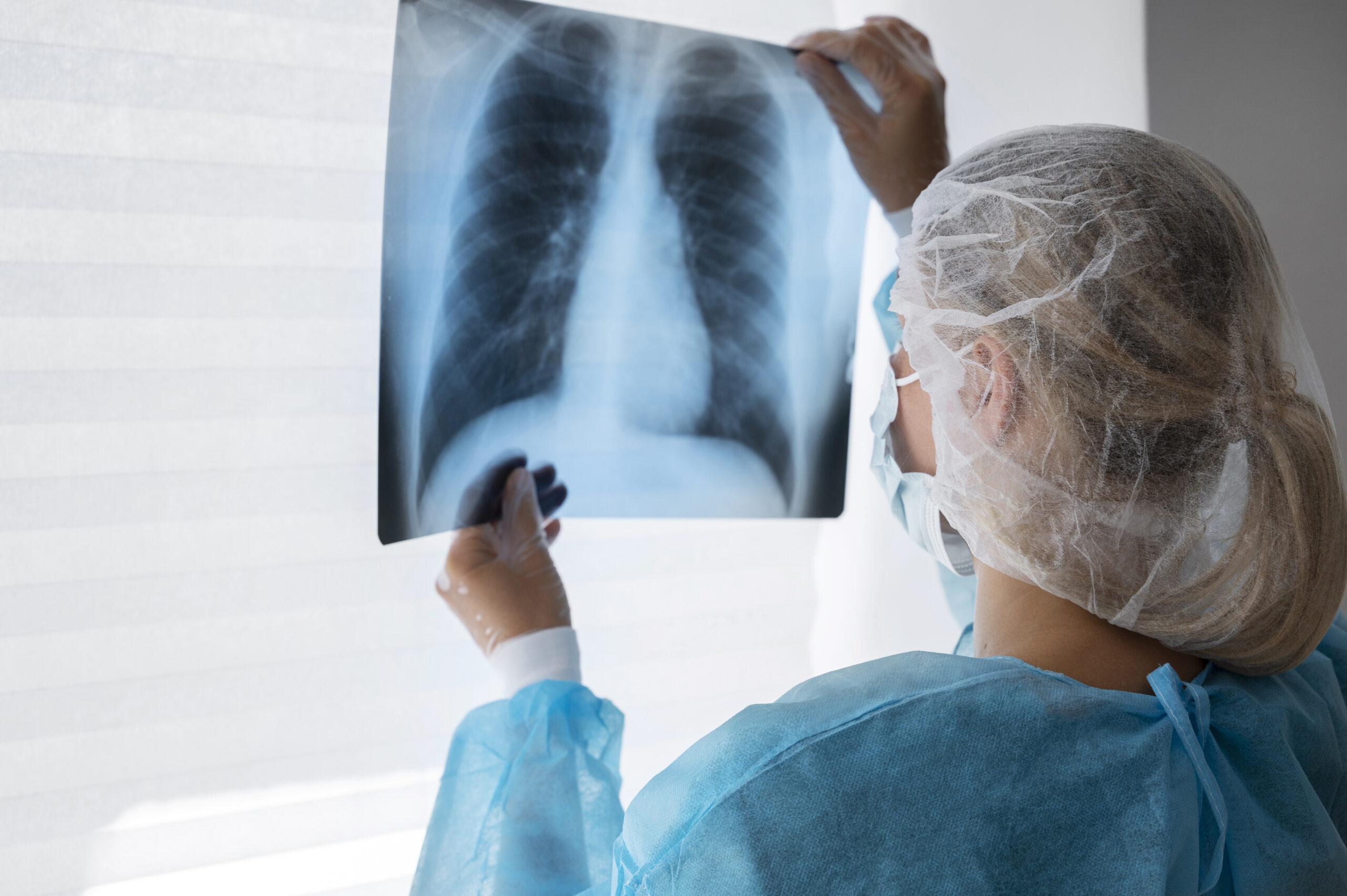Combatting Pneumonia: Your Guide to Signs, Shields, and Solutions

Pneumonia is an infection that inflames the air sacs in one or both lungs, which can fill with fluid or pus, leading to cough with phlegm or pus, fever, chills, and difficulty breathing. It can be caused by a variety of organisms, including bacteria, viruses, and fungi. Pneumonia is a significant health concern, particularly for young children, the elderly, and individuals with weakened immune systems.
Symptoms of Pneumonia
The symptoms of pneumonia can vary widely among affected individuals but commonly include:
1. Cough: Typically, pneumonia presents with a persistent cough that brings up mucus or phlegm, which may be green or yellow, or even have a rusty colored tint.
2. Fever: A high fever, often accompanied by chills, is frequently observed as the body fights off the infection.
3. Chest Pain: Patients may experience chest discomfort or sharp pain that worsens with breathing or coughing.
4. Shortness of Breath: Difficulty breathing or rapid breathing can occur, indicating reduced lung function.
5. Fatigue or Weakness: General feelings of exhaustion and malaise can be prevalent, making it challenging for individuals to carry out daily activities.
6. Nausea or Vomiting: Some patients may experience gastrointestinal symptoms alongside respiratory signs.
Preventing Pneumonia
Preventing pneumonia involves several strategies aimed at reducing risk factors:
– Avoid Smoking Near Children: Exposure to secondhand smoke can increase the likelihood of respiratory infections in children and adults alike.
– Immunization: Vaccines can protect against specific types of pneumonia, especially pneumococcal vaccines for adults and children and the flu vaccine, as influenza can lead to pneumonia.
– Improve Housing Conditions: Good ventilation and the absence of mold and pollutants in housing can lower the risk of respiratory infections.
– Right Nutrition: A balanced diet rich in fruits, vegetables, and whole grains can enhance the immune system, making it stronger against infections.
– Limit Exposure to Pollution: Both indoor and outdoor pollutants can irritate the lungs, so minimizing exposure is crucial for respiratory health.
Effects of Pneumonia
Pneumonia can have severe consequences, especially if left untreated. It can lead to respiratory failure, sepsis, and lung abscesses, and can exacerbate existing health conditions like asthma or COPD. Additionally, pneumonia can result in long-term health issues and complications, particularly in vulnerable populations.
Diagnosis of Pneumonia
Diagnosing pneumonia involves a thorough medical history review, physical examination, and diagnostic tests such as:
– Chest X-rays: To visualize the lungs and identify areas of infection.
– Blood Tests: To check for infection and assess overall health.
– Sputum Test: Analyzing mucus can help identify the causative organism.
– Pulse Oximetry: A simple test to measure oxygen levels in the blood.
Treatment Options
Treatment for pneumonia varies depending on the severity and cause of the infection but may include:
– Antibiotics: For bacterial pneumonia, appropriate antibiotics are crucial for recovery.
– Antiviral Medications: If pneumonia is caused by a virus, antiviral drugs may be prescribed.
– Supportive Care: Includes rest, hydration, and over-the-counter medications to alleviate symptoms like fever and pain.
Latest Developments in Treatment
Recent advancements in pneumonia treatment focus on personalized medicine, ensuring that therapies are tailored to specific patients based on genetic markers. Additionally, research into new vaccines and monoclonal antibodies is ongoing, aiming to provide better prevention options against pneumonia-causing pathogens.
In conclusion, pneumonia remains a significant health issue, but understanding its symptoms, preventative measures, and treatment options can empower individuals to take control of their respiratory health. Regular check-ups and vaccinations, combined with a healthy lifestyle, can significantly reduce the risk of this serious infection.
(Note: This article briefly overviews the subject and does not provide medical advice. If you suspect you may require more information about Pneumonia, consult with a healthcare professional.)



